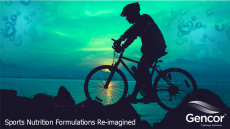Croda tightens up testing for dioxin-like PCBs in omega-3
omega-3 concentrates, certifying that dioxin-like PCB levels in
Incromega are more than 60 per cent below the new EC limits due to
come into force this month.
Dioxins, furans and dioxin-like PCBs (polychlorinated biphenyls) are organic pollutants that occur almost everywhere in our environment. Bi-products of combustion, they can be created either naturally through events such as forest fires or through man-made processes. High levels from consumption of edible fish and other animals have been linked to an increased risk of cancer and other health problems.
Concern over levels of these pollutants in fish has swayed some people away from consuming fish - despite the growing mountain of evidence supporting the importance of including fatty fish for a number of health benefits, including heart health, mental function and eye health. By giving assurances on the purity of fish oils used in supplements, companies can ensure that supplements continue to be seen as a viable alternative.
Steve Mellor, technical manager for Croda, said that the testing alleviates the need for expensive and time-consuming testing on the part of Croda's customers.
"We have invested heavily in environmental testing to support our lead position in omega-3 purity," he said.
Croda says that it achieves its high purity levels thanks to its proprietary purification and concentration technology called Puremac, which uses a minimum of three molecular distillation steps.
With its analytical programme, Croda says that it checks that dioxin-like PCB levels in each and every batch of Incromega are below 3 pg/g. It has previously issued assurances that Incromega has dioxin and furan levels of below 1pg/g.Maximum levels of dioxins and furans in fish oil intended for human consumption in the EU were set in July 2002 at 2pg/g. Since then, however, more information has become available on dioxin-like PCBs, leading to the introduction of a combined limit of 10pg/g as of November 4 2006.
The European Commission has stressed that within this limit dioxins and furans must still not exceed the 2 pg/g limit.
Food and feed containing two-thirds of the new limits will trigger an action alert, leading to an investigation into the cause of contamination.
Croda is not the only supplier to assure customers that its product is compliant with the new limits. In March Epax pledged that its omega-3 concentrates, both triglyceride and ethyl ester, will contain no more than 5 pg/g of dioxins, furans and dioxin-like PCBs combines. Its previous specification limit was 7.5 mg/g.
The introduction of the new EC limits comes just two weeks after two reviews conducted in the United States concluded that the benefits of oily fish consumption in line with government recommendations outweigh any health risks posed by potential contaminants.













